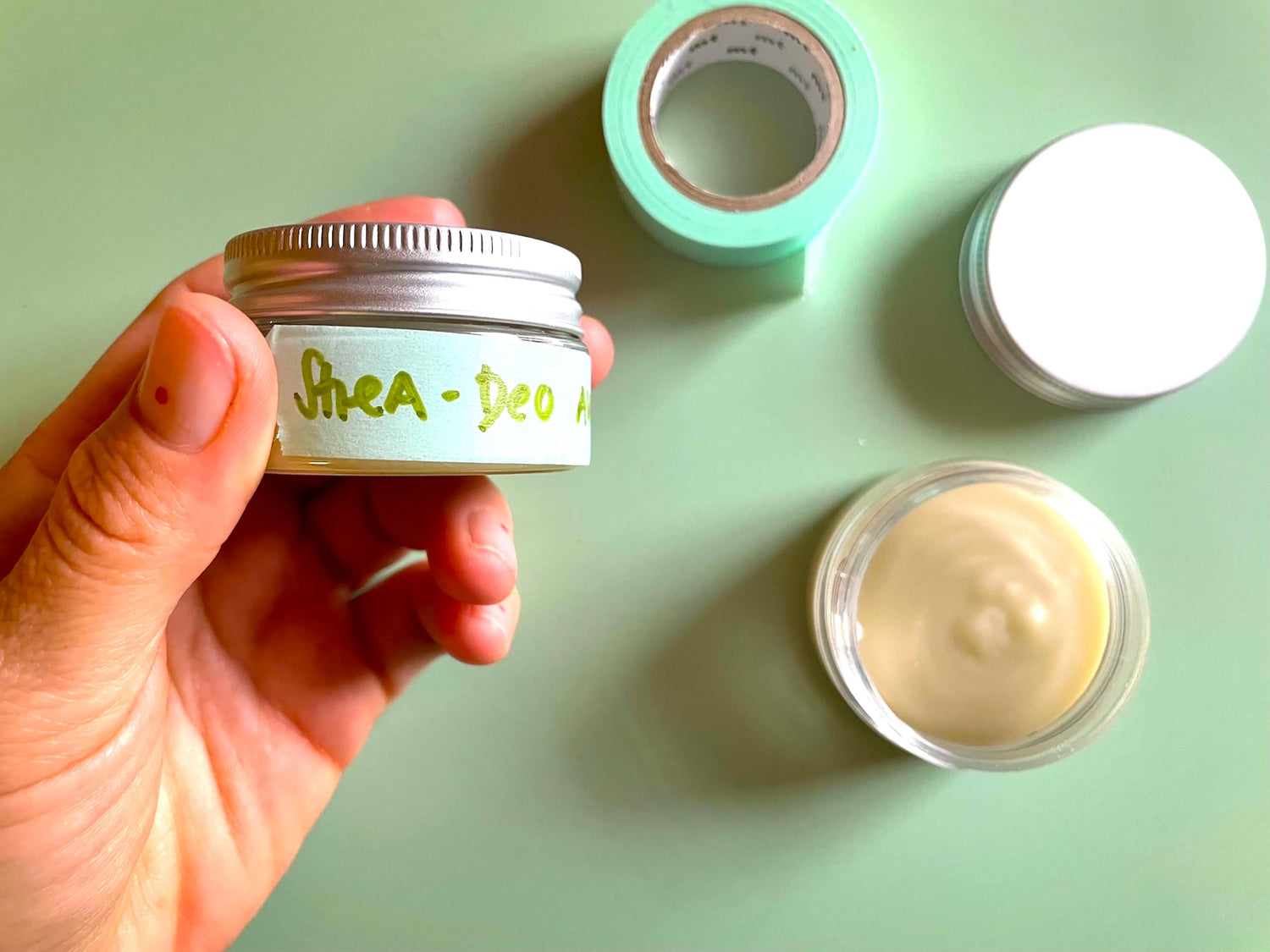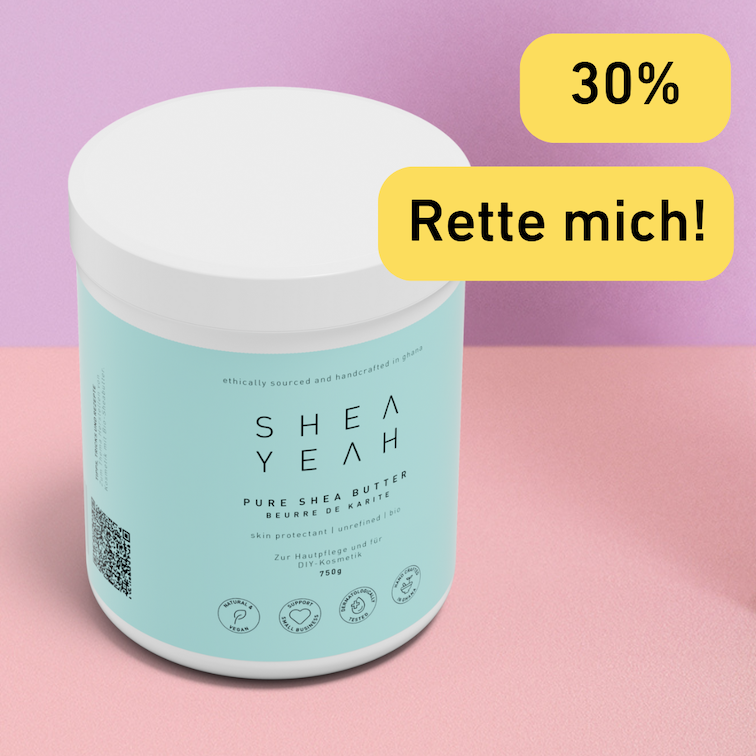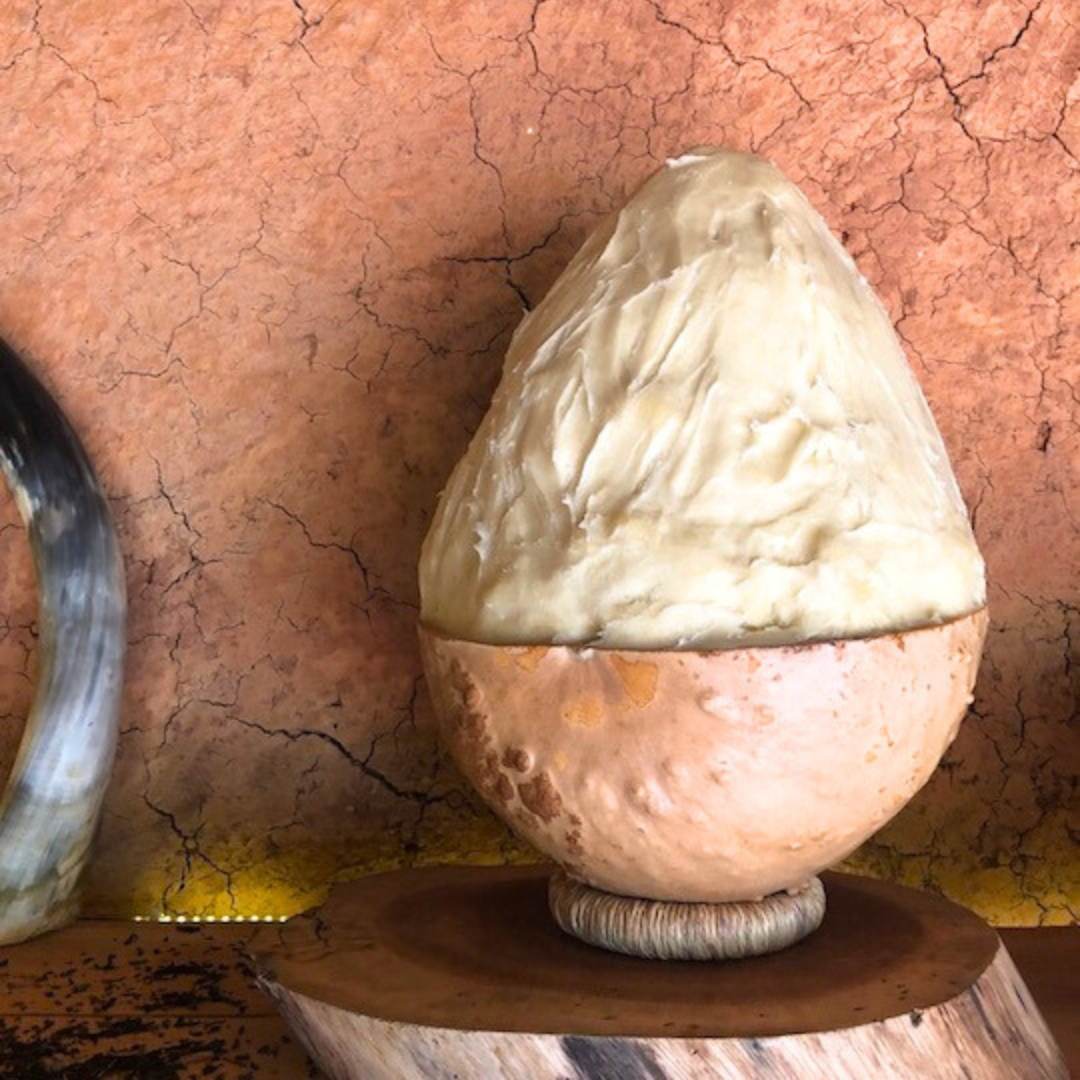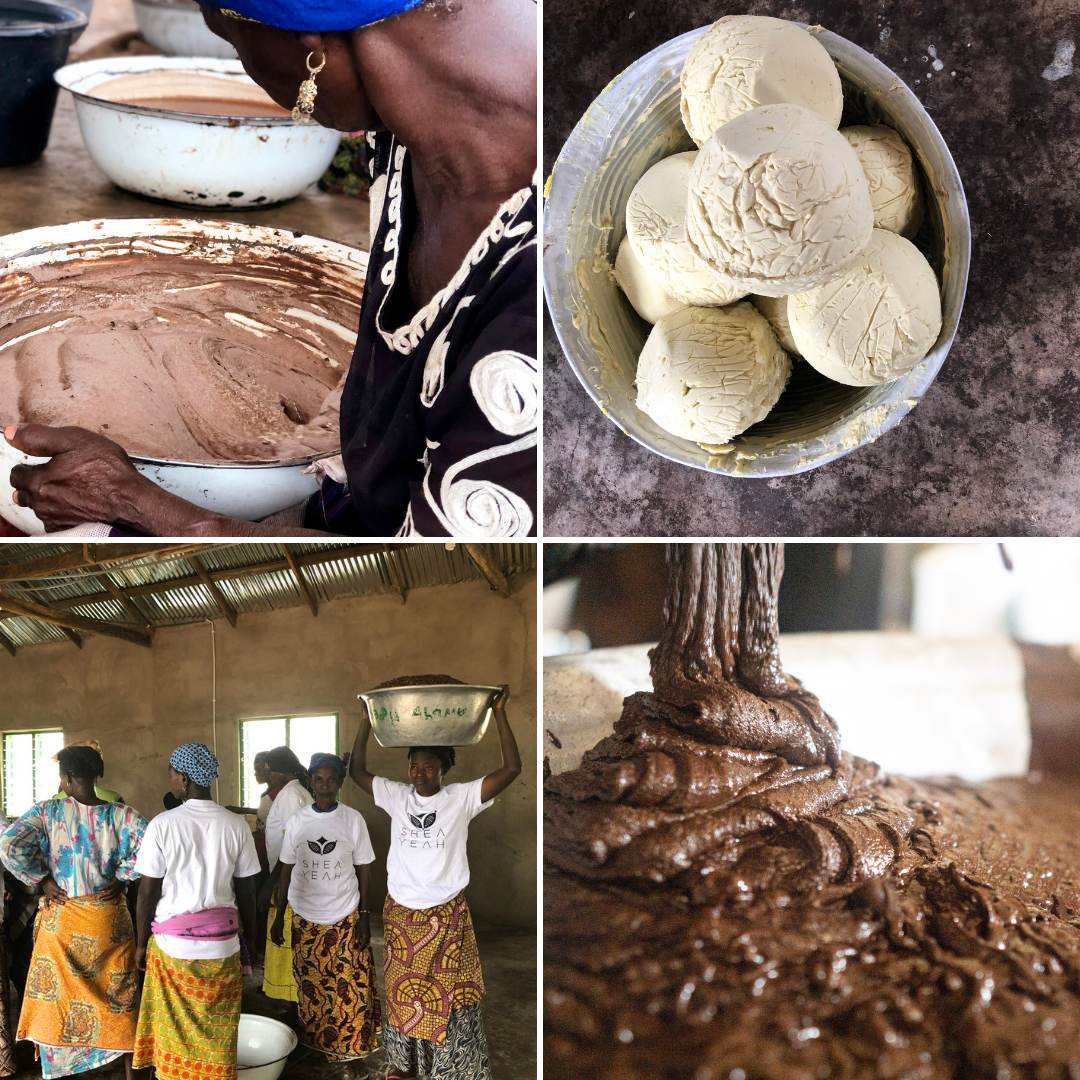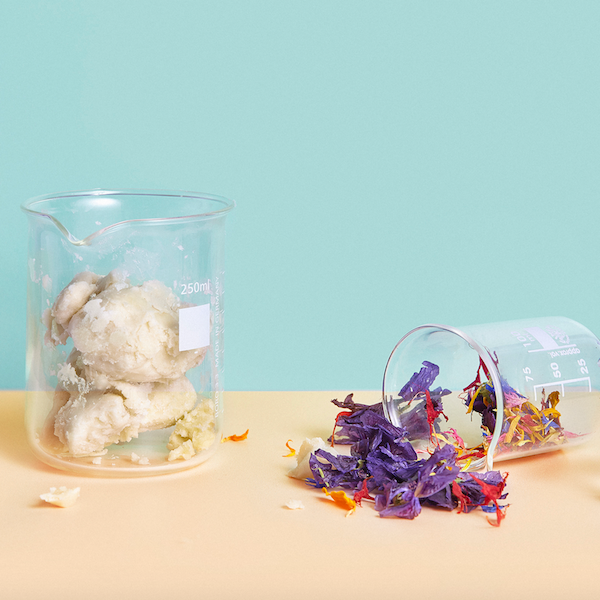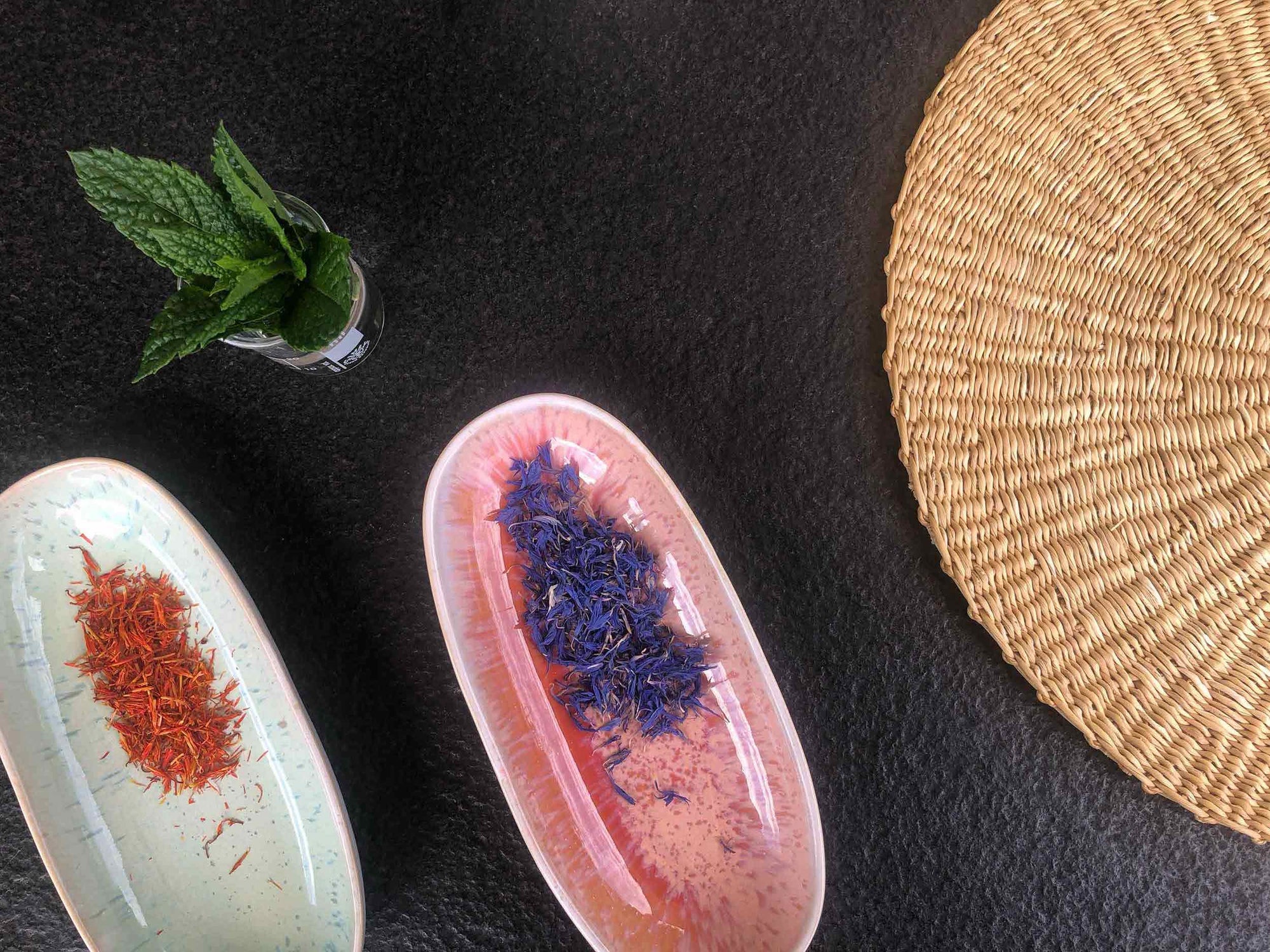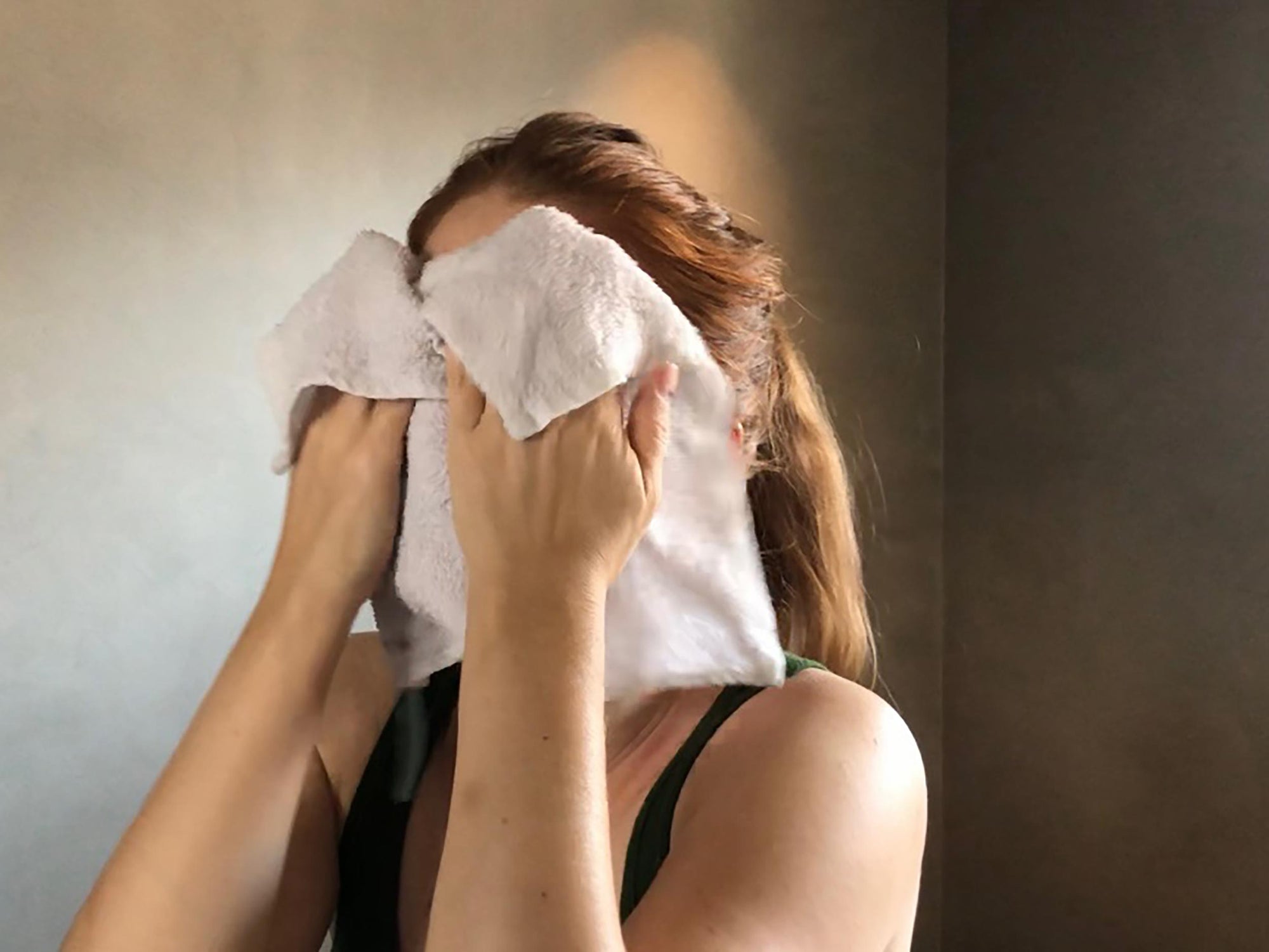Mix your own deodorant cream with just 7 ingredients. It's easy and works just as well as store-bought deodorants. Give it a try! This way, you'll avoid harmful substances like aluminum salts, synthetic fragrances, or parabens, which are unfortunately often found in conventional deodorants.
The 7 efficient ingredients
- 5 teaspoons Shea butter
- 5 teaspoons coconut oil
- 2 teaspoons base oil (e.g. olive oil, almond oil…)
- 2 teaspoons of clay (e.g. kaolin)
- 2 teaspoons of starch (e.g. cornstarch)
- 2 teaspoons of baking soda (omit/reduce if you have sensitive skin)*
- 2 pinches of zinc oxide
- Essential oil hyssop, lavender or sage (not required)**
-> Here you can find our DIY organic shea butter 750g
preparation
Before you get started, remember the 6 basic rules for making natural cosmetics at home. These are very important for the shelf life of your products.
- Mise en place of all ingredients.
- Mix zinc oxide, clay, starch and, if necessary, baking soda*.
- Blend the liquid oil into the powder mixture until a paste forms. Set the bowl aside.
- Gently melt the shea butter and coconut oil together in a water bath.
- Stir the mixture until cold and at room temperature.
- Add the mixture in portions to the powder paste and stir until a homogeneous paste forms.
- Refrigerate for 20 minutes, stirring once or twice during the process. Remove from the refrigerator and stir until a smooth paste forms.
- Finally, stir in the essential oil if desired. Pour into a container.
- Record the recipe and label the can with the contents and date of manufacture.
Quantity: This recipe fills approximately one 60-70ml can.
Estimated shelf life: 8-12 months. It tends to last longer if stored in a cool, dark place.
Application: Apply deodorant daily to clean underarms.
Why exactly these 7 ingredients?
So that you know why I made this particular choice of ingredients, here is a brief explanation of the benefits of each ingredient:
Shea butter and clay: Serve as healthy, mild natural conditioners.
Coconut oil: Lauric acid breaks down bacteria that cause unpleasant sweat odor. However, it is somewhat greasy.
Strength: Absorbs grease and moisture, so that it feels fresh and light after application and the deodorant does not leave too greasy residue on clothing.
Zinc oxide: Has an antibacterial, slightly astringent effect and binds moisture.
Sodium bicarbonate (baking soda): Neutralizes odors, but is alkaline and can therefore irritate skin. So be careful if you have sensitive skin! More on that later.
Essential oils: A selection of oils reduces sweating and sometimes has an astringent effect. Personally, I love hyssop, sage, or lavender.

The quality of your ingredients
Make sure that you have the ingredients shop consciously: Organic, cold-pressed, and from as clear a source as possible (we know, it's not easy!). We can help with the shea butter! The SHEA YEAH shea butter is certified organic, comes from wild growth, is unrefined and traditionally produced in the north of Ghana!
You can buy additional ingredients at your local health food store or organic store, or online from the Heilpflanzenatelier (Medicinal Plant Studio). This is a very good address, and I personally know it from the "Basic Course in Making Your Own Natural Cosmetics" and other training courses.
Have fun making your own deodorant. And if you have any suggestions, tips, or tricks for making deodorant, please let us know! DIY deodorants are a huge topic, and you can't avoid experimenting until you find a recipe that suits you personally. At least, that's been my experience.
All the best, Sandra
Natural cosmetician & founder SHEA YEAH

*Substitute for baking soda - important for sensitive skin!
Many natural deodorants you can buy contain baking soda. Unfortunately, I personally can't tolerate it, even though it's very effective. After the first use, I get burning and itchy rashes – but I'm extremely sensitive! However, I generally recommend reducing or completely eliminating baking soda and replacing it with clay , zinc oxide , and starch . If you're not sensitive, go for it! (I definitely would :-)).
Baking soda By the way, it decomposes at higher temperatures. So, be sure to check the temperature when adding it—max. 25 degrees—otherwise, a chemical reaction will occur, and your deodorant will bubble and eventually "burst" the can after a few hours. Yeah, haha.
**The dosage of essential oils
For body products, the dosage is 2-3%. Never use essential oils undiluted! If you are pregnant or breastfeeding, consult a professional. I don't always use essential oils because I have very sensitive underarms and often suffer from rashes.

